Sustainability
Networks
Dialogue between different stakeholder groups on local, national and international level is necessary to promote and advance sustainability. Networks are therefore of major importance, they bring together the competences of different players. This is valuable for BASF due to:
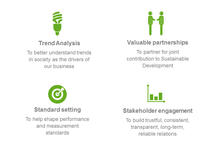
BASF is part of large global networks with holistic approaches to sustainable development, as well as topic-specific networks to address individual challenges. Below is a selection of networks with high importance for BASF:
Holistic sustainable development networks
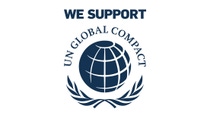
Global Compact
Launched in 2000, the United Nations Global Compact is a call to companies around the world to align their strategies and operations with ten universal principles in the areas of human rights, labor, environment and anti-corruption, and to take action in support of broader UN goals. BASF was one of the founding members.

World Business Council for Sustainable Development (WBCSD)
The WBCSD is a global, CEO-led organization with around 200 member companies. The mission is to accelerate the transition to a sustainable world by enhancing the business case for sustainability, delivering science-based solutions and engaging members on a variety of sustainability issues. BASF is a member since 1999.
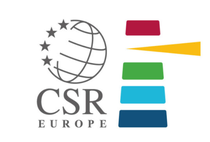
CSR Europe
CSR Europe is the leading European business network for corporate social responsibility. The network promotes collaboration and co-creation of opportunities between member companies, societal stakeholders and public authorities and encourages the integration of sustainability into business models. CSR Europe engages with European institutions about policy to drive the global sustainability agenda and systemic change.

econsense
econsense, Forum for Sustainable Development of German Business e.V., is an association of internationally operating companies in German business to actively shape the change to a more sustainable economy and society. econsense proactively addresses sustainability challenges and advocates frameworks and policies that foster sustainable innovation. BASF was one of the forum’s founding members in 2000.
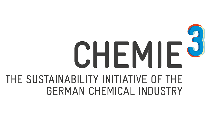
Chemie³
Under the umbrella of Chemie³ (Chemistry³), the German Chemical Industry Association (VCI), the Mining, Chemical and Energy Industrial Union (IG BCE), and the German Federation of Chemical Employers’ Associations (BAVC) have joined forces to further the cause of sustainable development. The core of the initiative Chemie³ is formed by 12 guidelines for sustainability in the chemical industry in Germany. Basic elements of this initiative are open dialogue with stakeholders and supporting members of VCI, IG BCE and BAVC to put the guidelines into practice.
Topic-specific Networks

Alliance for Water Stewardship (AWS)
The Alliance for Water Stewardship (AWS) is a global membership collaboration comprising businesses, NGOs and the public sector. AWS’s mission is to promote water stewardship that recognizes the social, cultural, environmental and economic value of freshwater. BASF is a member since 2016.
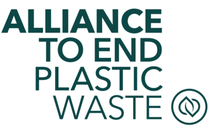
Alliance to End Plastic Waste (AEPW)
In 2019, BASF co-founded the Alliance to End Plastic Waste (AEPW) a global cross-value chain initiative to help end plastic waste in the environment. Over 40 companies from the plastics and consumer goods value chain have committed over $1.0 billion to develop and bring to scale solutions that minimize and manage plastic waste and promote post-use solutions.
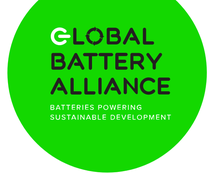
Global Battery Alliance (GBA)
GBA is a public-private collaboration platform of about 70 organizations hosted by the World Economic Forum. It seeks to catalyse, connect and scale-up efforts to ensure that the battery value chain is socially responsible, environmentally and economically sustainable and innovative. BASF is a founding member of the initiative launched in 2017.
Global Business Initiative on Human Rights (GBI)
GBI is a business-led organization committed to strengthening corporate respect for human rights. GBI aims to advance human rights in line with the UN Guiding Principles on Business and Human Rights and OECD Guidelines for Multinational Enterprises and address governance gaps. BASF joined in 2012 to contribute to international discussions and consult with civil society to gather input for its measures.

Global Reporting Initiative (GRI)
GRI is a multi-stakeholder organization founded in 1997 to develop globally accepted standards for reporting on economic, ecologic and social activities of organizations and companies. BASF reports in accordance with GRI guidelines since 2003. Since 2017 BASF uses the more comprehensive GRI Standards to report impacts and contributions towards sustainable development. As a member of GRI’s Gold Community, BASF is actively engaged in further developing and promoting sustainability reporting standards.
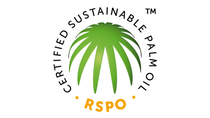
Roundtable on Sustainable Palm Oil (RSPO)
The Roundtable on Sustainable Palm Oil is a global, multi-stakeholder initiative with more than 4000 members representing all links along the palm oil supply chain. RSPO has developed comprehensive environmental and social certification criteria to transform markets towards sustainable palm oil. BASF joined RSPO in its first year in 2004.
Together for Sustainability (TfS)
TfS is a joint initiative of chemical companies for the global standardization of supplier evaluation and auditing. The initiative is based on good practices and builds on established principles, such as the UN Global Compact or the Responsible Care Global Charter. BASF was one of the founding members in 2011.
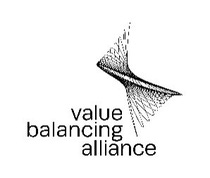
value balancing alliance e.V.
The value balancing alliance aims to create a standardized model for measuring and disclosing the environmental, human, social and financial value companies provide to society. The value balancing alliance is a cross industry alliance founded in 2019 by eight international companies including BASF.